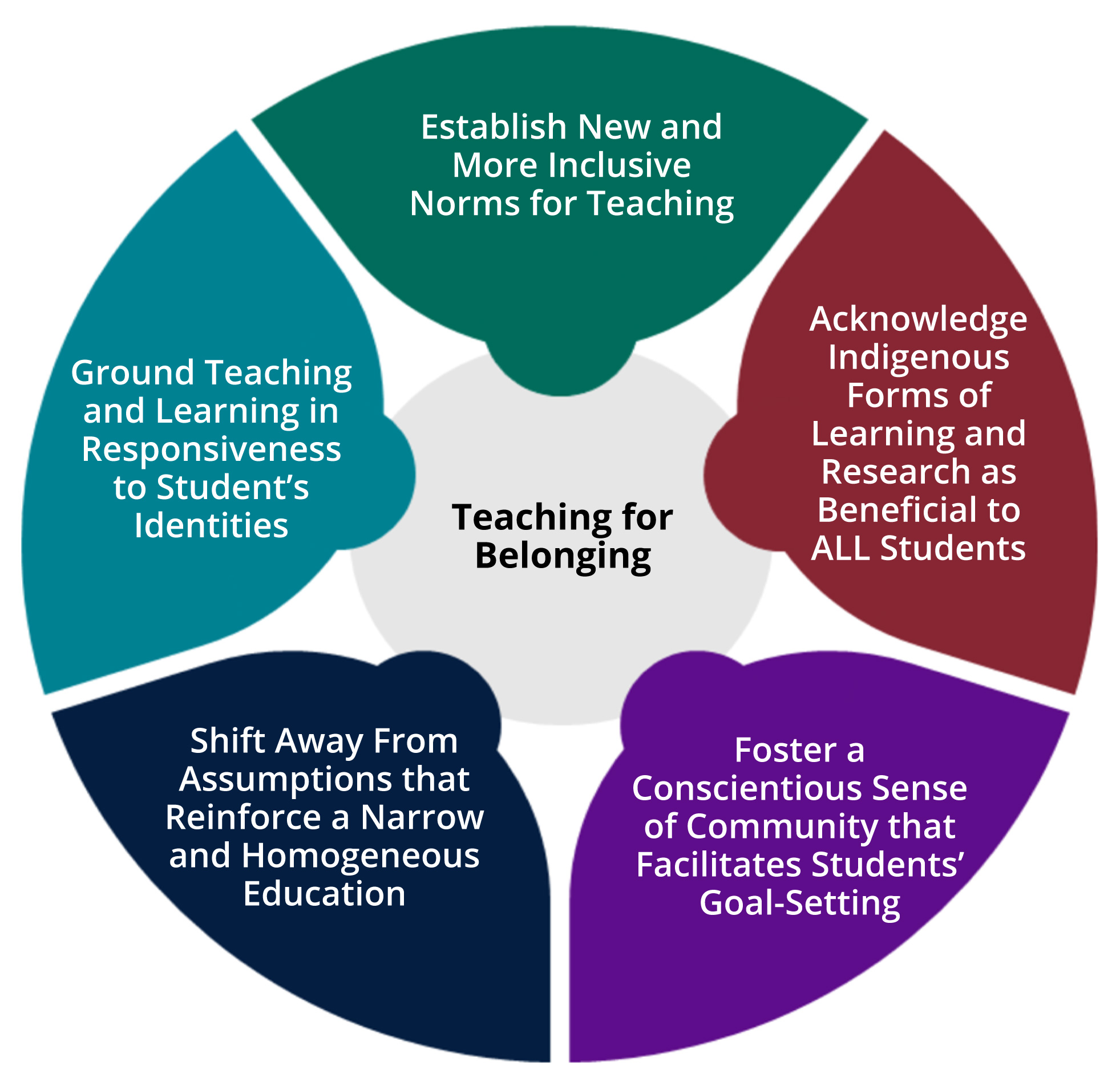Inclusive and Identity - Responsive Teaching
Grounded in pedagogical practice.
Makes connections between theory and practice.


Based on the findings that a sense of belonging impacts student engagement, success, retention and graduation.
Encourages instructors to be mindful of assumptions and biases that may enter through their teaching and negatively impact students' sense of belonging.

 Click here for an Infographic Description
Click here for an Infographic Description
Teaching for
Belonging
Framework
The teaching for belonging framework encourages instructors to consider the ways in which their assumptions and biases enter what they teach through their hidden and null curricula, and the impact on students' sense of belonging. It provides a framework for surfacing these norms and reframing what and how instructors teach. This graphic representation highlights the interconnections of the various theoretical components that informed the development of the framework. This framework forms the core of the EDI toolkit.


